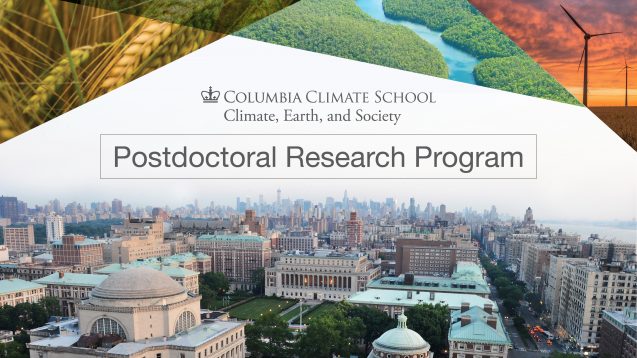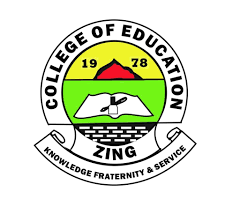Columbia University Climate School Postdoctoral Research Program 2024
Through the Climate School Postdoctoral Research program, Columbia University’s Climate School supports the scholarship needed to tackle climate change and its related global challenges. The Climate School works to offer solutions through transdisciplinary research, partnerships, education, innovative technology, building knowledge, and the sharing of ideas.
The Climate School Postdoctoral Research program is the premier program in the world for those dedicated to a better understanding of critical scientific and social issues in Climate as well as in global sustainable development. Climate School Postdoctoral Researchers will join multidisciplinary teams of outstanding, committed scientists to advance our scientific understanding of these challenges and develop practical responses to address them.
Successful postdoctoral candidates are matched with Principal Investigators and mentors from across the Climate School, including the Climate School’s research centers and programs, the Lamont-Doherty’s Earth Observatory, Columbia University Medical Center, and other affiliated schools and departments.
For a list of faculty and researchers who have expressed an interest in mentoring a postdoctoral researcher, please click here.
The program provides innovative postdoctoral scholars with the opportunity to build a foundation in one of the core disciplines represented within the Climate School (sustainability, the environment, social justice, and the geosciences), while at the same time acquiring the breadth of cross-disciplinary expertise needed to address critical issues related to sustainable development. Specific areas of research include carbon neutral economy, adapting to future climate, earth fundamentals, resilient ecosystems, climate, and social systems, and climate justice and equity. The program offers a unique intellectual surrounding that fosters cross-disciplinary interaction, research, and education.
To apply, candidates must complete the online application and submit a proposal for research that would contribute to the goal of global sustainable development. Proposals may suggest participating in, contributing to, or extending existing multidisciplinary Climate School projects. Candidates are also encouraged to develop new, innovative projects that connect Climate School expertise. In addition to submitting the application and proposal, candidates are encouraged to identify and contact their desired multidisciplinary mentoring team, i.e., two or more senior faculty members or research scientists/scholars at Columbia University with whom they would like to work during their appointment.
We encourage research proposals for topics from all areas of sustainable development and climate research for the postdoc program. This year, we are particularly interested in the following thematic areas, which we see as priorities for addressing some of the global challenges that the Climate School is working to address:
The Food Transition
The globally intertwined food system both contributes to climate change and is highly vulnerable to changing weather patterns. This initiative develops and disseminates robust evidence on sustainable pathways for food system transition, working closely with stakeholders locally and globally.
Coastal Viability
Coastal regions around the world face significant risks due to sea level change, both rising and falling. This initiative leverages fundamental research in sea level and coastal science to develop solutions and partnerships with local communities and governments to create a path to a more resilient future.
Energy Storage
Columbia is working to increase capabilities in battery technology, including improvements in performance, finding new materials for batteries that do not depend on rare metals, and understanding the intersection with the grid.
Carbon Management
Columbia pioneered the scientific research and technological innovation for carbon removal and its sequestration into rocks, and is working to find new technologies for removing, transporting, and storing carbon.
Artificial Intelligence (AI) and Climate
Columbia has world-leading teams of climate modelers who develop precise methods for predicting the future under specific scenarios. These methods allow us to understand and map the changing world, including the impact of climate solutions and interventions.
Disaster Resilience
Catastrophic events amplified or triggered by climate change lead to mass casualties, trauma, economic damage, and political instability. This initiative develops techniques to improve disaster preparedness, prevention, prediction, response, and resilience across societies.
Climate Finance and Risk
Columbia’s team of leading scholars is developing the field of climate finance to understand the levers and resources required to support pathways toward decarbonization.
Climate and Environmental Justice
Climate variability and environmental sustainability dilemmas present unique challenges for various demographic groups inside and among countries and regions. It is critical that responses to climate and environmental challenges be informed by the needs, rights, histories, and visions of the future of groups who will be impacted by a particular policy or technical solution.
Questions? Email postdocs@climate.columbia.edu.
The Lamont-Doherty Earth Observatory (LDEO) also awards postdoctoral fellowships in the earth, environmental, and ocean sciences. Please visit the LDEO Postdoctoral Fellowship page for more information.




